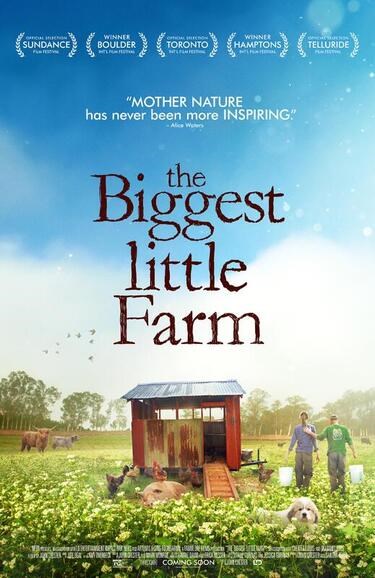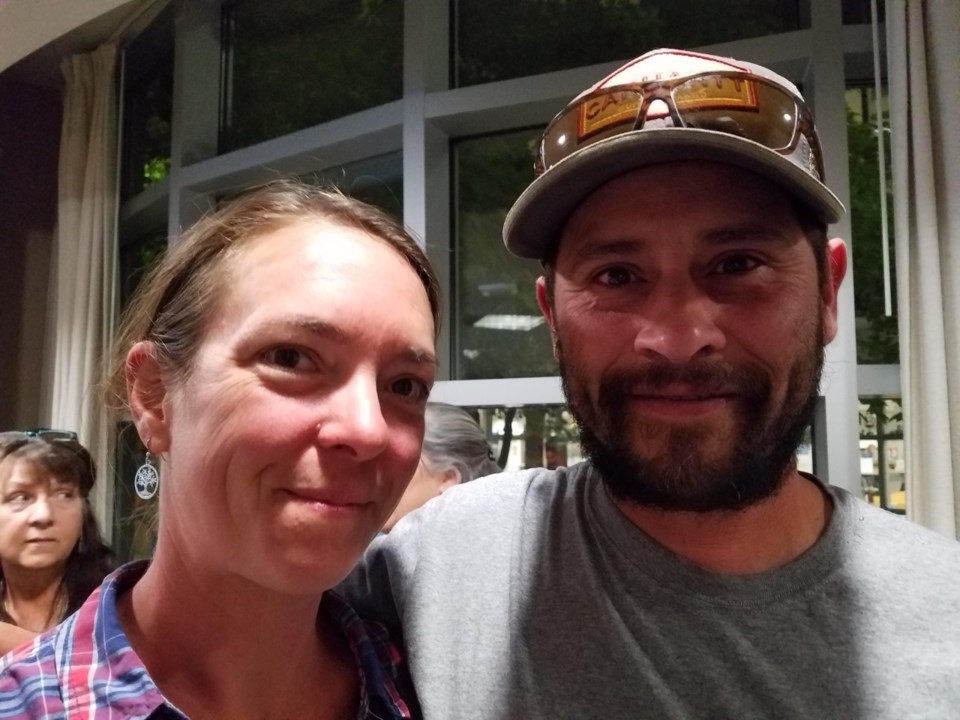This content was originally published by the Longmont Observer and is licensed under a Creative Commons license.
Longmont and Boulder County are home to dozens of organic farms, both on privately held land and on Boulder County Open Space, supported through the Cropland Policy, created in 2011. They are mostly small, around 10 acres, and sometimes less than one acre, depending upon the crops grown.
Many provide Community Supported Agriculture (CSA) whereby members of the public buy shares in the farm and receive a specified amount of fresh produce and other farm products throughout the growing season. Thus both consumers and farmers share the risks of agriculture in the local area.
By the end of 2018, 22% of the 16,000 acres of County cropland were either certified organic or transitioning to organic crops. The County feels confident that its goal of 25% by 2020 will be achieved.
The Biggest Little Farm tells the story of the genesis and growth of one organic farm in Southern California and was shown at the Longmont Public Library earlier this week. It won the Best Documentary award at the 2019 Boulder International Film Festival, as well as numerous other film festival awards. The showing was well supported and included a Q&A session afterward with a local organic farmer.

The Chesters of Ventura County had a dream to become closer to the land and left their city jobs in 2011 and found 200 acres 40 miles north of Los Angeles. They were able to round up enough investors to purchase the land (the movie does not share the financial details), which had been through several owners over the prior decades, including a couple of banks. Dry, dry land that required massive amounts of irrigation and also the volunteer labor of many young people, some from overseas. They also had the continued support of two farm workers who had worked the land for many years.
Then their mentor arrived – Alan York was a charismatic soil, plant and biodynamic consultant, sometimes described as the “guru of green”, and he helped them convert their dream to reality. His mantra was that diversity leads to simplicity, although watching the seven years of hard work, joys and setbacks the Chesters’ agricultural dream entailed, it looked anything but simple. Alan worked tirelessly with John and Molly until his sudden death from cancer in 2014.
The film is a visually stunning homage to the beauty of farming and farmland, including the animals and livestock that contribute to the harmony of the land. The orchards offering over 70 varieties of stone fruit cover a large part of the farm, but they are combined with ground cover that helps to feed the sheep and pigs, which in turn provide the same land with manure filled with nutrients. All is not peace and harmony of course, and the Chesters have to deal with coyotes killing chickens and lambs, birds destroying 70% of their fruit crop one year, 70,000 snails attacking the bark of the fruit trees, gophers burrowing holes in pasture that threaten their livestock movement, and of course another drought, followed by a raging fire that miraculously avoids the farm.
The Biggest Little Farm shows us the inter-dependency of every living organism on the planet, even down to the microbes in the soil, and that with hard work, a lot of knowledge and the ability to try, try and try again it is possible to keep the planet in balance, without resorting to artificial and possibly harmful solutions. There may be a little too much anthropomorphism included, with wriggling piles of hungry piglets, bouncing lambs, sad-eyed dog. We never find out how much money this project cost or that the Chesters now employ 60 people, but the film will be inspiring for many and it is certainly a feast for the eyes.
The film was followed by a short presentation from Amanda Scott, who owns 63rd Street Farm in Boulder County with her husband, Brian. He started the farm in 2007 and met Amanda while making vegetable deliveries to the Dushanbe Tea House in Boulder, where she was the general manager.
The farm now has 50 acres, much of it leased from Boulder Open Space. Amanda admitted that they were close to losing the farm a few years ago until Boulder County found them some additional acreage that they could lease at an attractive rate. Now, as well as vegetables grown using permaculture methods, they also have pigs and cows to add to the diversity of the business. They have increased the number of their CSA supporters from the original 65 to over 350 today and members can add eggs, free-range chickens and turkeys, as well as pasture-raised pork to their shares.

The 63rd Street Farm also collaborates with other organically minded producers of beef, wine and even fair-trade coffee to present to their shareholders. The Scotts host monthly farm dinners through the summer season, as well as offering farm tours to adults and students throughout the year.
Amanda is proud of her work worn hands and the hard life that she and Brian share, even though they bought their first tractor only last year (1949 vintage). Farming does not allow for days off, even with the help of a Farm Manager. The Scotts are concerned that their way of life is increasingly unattractive to the next generation, so they encourage volunteers to join them during the summer months and offer workshops about every aspect of the farming life.
Amanda and Brian Scott may not have an award-winning documentary in their future, but they follow the same determined path to sustainable agriculture that is such an important component of their community and the ecosystem.


